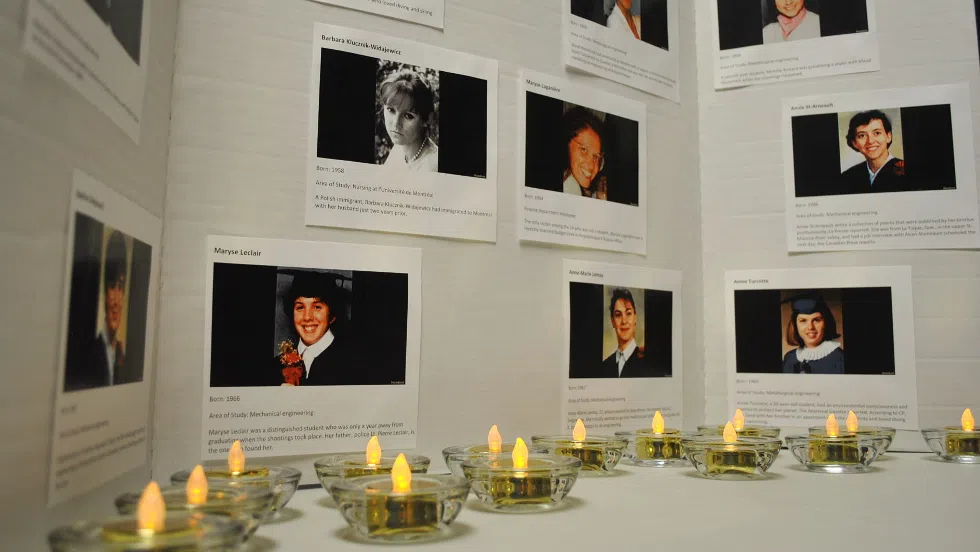
Polytechnique shooting vigil serves as call to action
Both women and men have to stand up and take action in order to prevent gender-based violence, if the issue is to end.
That was the message of Patricia Leson, president of the Prince Albert Council of Women, at a vigil held last night in honour of the 14 women killed during the 1989 shooting at Montreal’s École Polytechnique. The day was marked across the country as the National Day of Remembrance and Action on Violence Against Women, and Leson said the anniversary of the shooting provides an opportunity to reflect.
“We must remember those who have died as a result of gender-based violence,” Leson said. “They died because they were women.”
The vigil also served as a call to action, Leson said, because the gender-based hatred that inspired the Montreal shooter is still alive in today’s society. Leson called on the attendees to listen, support, and believe victims of gender-based violence, and to speak out and intervene whenever they witness sexism or violence.


